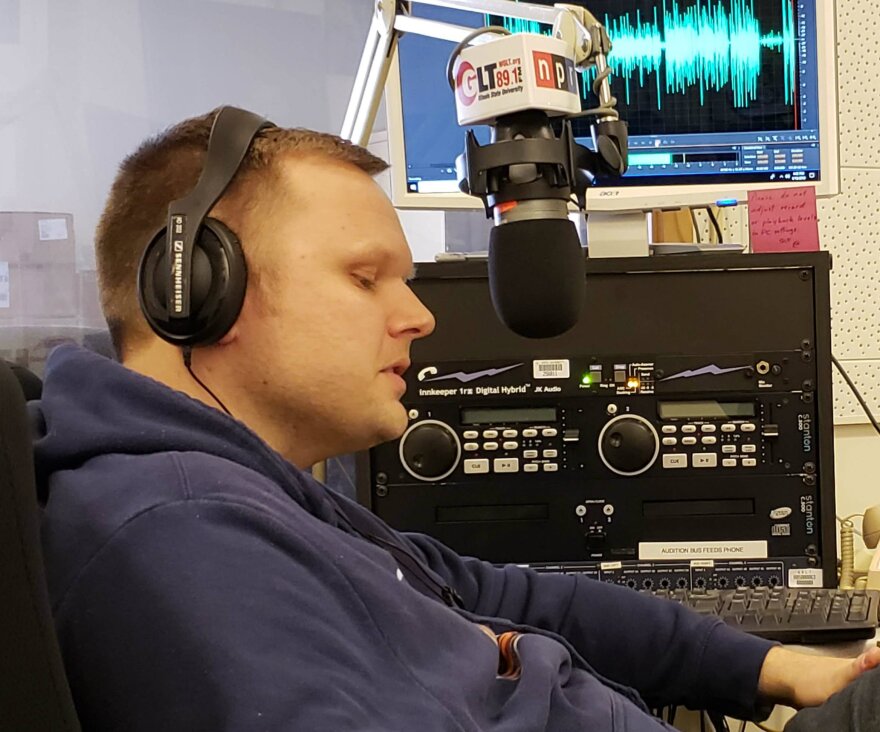This week, public radio station across Illinois are tackling a once taboo topic.
There are several current and emerging markets for cannabis-related products. Medical marijuana is already legal in the state, farmers are gearing up to grow industrial hemp, and lawmakers could consider a measure to legalize the recreational use of marijuana this year. Whether or not recreational use is legalized, the business of cannabis is already established in the Land of Lincoln, and our reports are intended to bring you information related to these efforts.
In this reporter roundtable, you will hear from three reporters who are covering this topic from different regions of the state.
THE VIEW ACROSS ILLINOIS
Ryan Denham is a reporter with WGLT in Bloomington-Normal. His story looks at the economic development implications if recreational marijuana is legalized in Illinois. He says this could include the potential for job creation and additional tax revenue. But not all of the findings may be positive.

He says for his reporting he started by looking at the medical marijuana program in Illinois to find out what that has yielded so far.
“We're trying to measure the economic development impact and any controversies that also arose as it relates to some of those communities,” Denham said. “If (recreational) marijuana were to be legalized, the economic development that we saw as a result of medical marijuana may be expanded, and we could maybe extrapolate some of those numbers on this kind of larger issue.”
Steph Whiteside is a reporter with Illinois Newsroom and WSIU in Carbondale. She’s delving into how people in Illinois have used medical marijuana as an alternative to opioids when managing pain.
She says her reporting looks at programs designed to wean people off of opioids, which are highly addictive and can be misused.
“What do we know about using medical marijuana in this way? What don't we know? And how it might work for patients,” Whiteside says are among the questions she’s been asking.

Sarah Jesmer is a reporter with WNIJ in DeKalb. She says as she started looking into the potential legalization of recreational cannabis, she started to learn about a “gray market” for the drug: areas where purveyors are operating legally, but customers may not be getting the full story.
“CBD is legal to be sold in Illinois,” Jesmer explained. “Sometimes that comes in oil, sometimes that comes in an actual dry flower that people can smoke. So that's it looks and smells like real marijuana, but it's not.”
CBD is legal because it doesn’t contain the psychoactive elements found in marijuana. There is a small threshold that is allowed. The legislation in Illinois camps hemp-based CBD from containing more than 0.3 percent THC.
“One of the most surprising things I found is there's a certain level of THC in the CBD flower that's sold,” Jesmer said. “There's very little regulation about how much is actually in the product that you're buying. There's no outside testing. Sometimes a company is selling from Colorado to Illinois-- bringing their CBD products here. And there's no in-between testing to make sure that that point 0.3 percent is being met.”
BIGGEST SURPRISES
For Whiteside, getting doctors to talk openly about this topic hasn’t been easy. She says maybe it’s a Midwest thing.

“Before I moved to Illinois, I was in California. In California, you can't get doctors to shut up about marijuana,” Whiteside joked. “(In Illinois) I've met doctors in person who will tell me, ‘We're really excited about this program, it's a much better alternative particularly for people who may need an opioid prescription.' But when you follow up about talking on-the-record, it's just crickets.”
She guesses it may be hospital systems who are worried about losing federal funding. So they keep a tight lip.
For Denham, the biggest surprise in his reporting is how much cannabis in Illinois is an agricultural issue.
“I was talking to the former Logan County Board chairman who played an instrumental part in landing a (cultivation) facility. And he put it in terms of, ‘We're a rural, agricultural community at heart. Corn and beans are what we had for the longest time. Now we're adding marijuana to that.'”
TRADE-OFFS
For Denham, becoming informed about the state of cannabis is crucial as policymakers debate the issue.
“Everything is a matter of trade-offs,” Denham explained. “For example, we have cars. There are X number of fatal car crashes and non-fatal car crashes. That number is the number we have decided we can live with. And that is the trade-off," he said. "I think this potential legalization of (recreational) marijuana is just one of those things. We are literally making a big huge list of pros and cons and trade-offs. And hopefully, that's what this reporting and the series is doing—putting all of those pros and cons in front of you. So you can follow the issue. And you can, if you want, lobby elected officials.”


